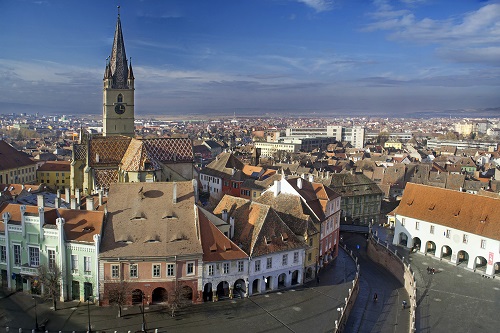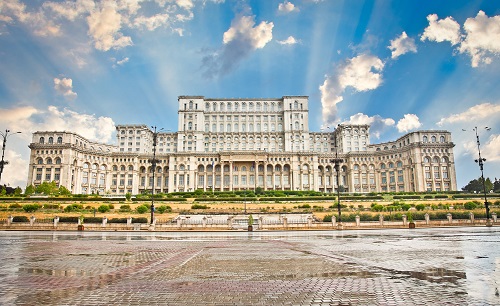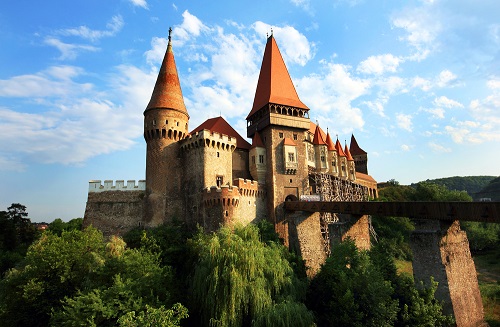Romania is becoming an increasingly popular tourist destination and it is also home to a number of working expats. Whether or not you will need a visa to travel there will depend on your nationality, as well as your reason for visiting. We will look at some of your options below.
Will I need a visa?
If you hold a British passport, you do not need a visa to enter Romania. If you are planning a stay of longer than three months, however, you will need to register as a Romanian resident. You will need to obtain a certificate from the General Inspectorate for Immigration.
If you are from an EU/EEA member state, you will not need a visa to enter the country, but you will need to register with immigration if you wish to work.
If you are a US citizen, you must have a US passport that is valid for at least three months beyond your intended departure date from Romania. If you are a US citizen and want to stay for longer than 90 days, you must obtain an extension from the Romanian Ministry of Internal Affairs.
There are various types of long-stay visa, and which one you will need to apply for depends on the purpose of your trip. For example, there are visas for family reunification, study and more.
How do I apply for an entry visa?
If you are a third country national, for example an American citizen, you will be able to enter and remain in Romania without a visa for up to 90 days in any 180-day period. However, the authorities warn that departing from Romania and attempting to re-enter the country does not “restart the clock.” US citizens who depart Romania and return will be admitted for the remainder of their 90-day allowance. If you attempt to re-enter Romania after having already spent 90 days there in the 180-day period, you may be denied re-entry.
As above, if you are from the EU or the UK, you must register with the authorities if you intend to stay in the country beyond a certain period, or if you wish to work.
You can apply for a Romanian visa (an eVisa) online.

How much does it cost?
The Romania eVisa costs US$68. Additionally, there is a service fee of US$30 for standard processing. For rush processing and super rush processing, the service fees are US$55 and US$85 respectively.
How long does it take?
Visa processing takes anywhere from two days to 15 days, depending on the consulate and whether you choose to expedite your application.
What will I need to apply for a work visa?
Your ability to work in Romania will depend on whether you are a citizen of an EU/EEA state. If so, you will have an advantage, in that you will be able to reside in the country and the process of applying for work will be smoother. Citizens of Romania and the EU are prioritised by the Romanian government, so if you are a third party national, you / your employer will have to prove that there is no Romanian or EU citizen who is capable of doing the job.
Whether you are an EU member or a third party national, however, you will still need to apply for a work permit.
There are a number of categories, into which the Romanian administration will put you:
• Permanent worker
• Probation worker
• Seasonal worker
• Cross-border worker
• Skilled worker
• Detached worker
• ICT (inter company transfer) worker – if you are being transferred to your existing company’s base in Romania
The General Inspectorate for Immigration will require some documents from you, which may differ slightly depending on which category you fall into. As a foreign national, you may be employed in a full-time role in Romania only by a single employer, whether an individual or a legal entity. Foreign personnel who hold a work permit may be employed by another employer in a part-time contract of up to four hours per day.
If you are a permanent worker, who is a third party national, you will need to apply first for a work authorisation, then a visa, known as a Romanian employment visa (D/AM). The General Inspectorate for Immigration will require from you / your employer:
• An application form
• Proof that your employer is legally permitted to hire you
• Company’s Certificate of Registration
• Company’s Certificate of Attestation
• Tax attestation
• Employment agency’s certificate
• Job description
• Job offer
• Proof that the company has advertised the vacancy
• A copy of the minutes of the selection process (this is also to prove that you are a better choice of candidate than an EU national)
• A declaration that you are medically fit to work and that you have at least a minimal knowledge of Romanian
• Proof of accommodation
• Proof of financial support
• Your CV
• Two photos (3cm x 4cm), in which 70% – 80% of the photo features your face, taken on a white background
• Police clearance documentation for both yourself and your employer
• Your passport
The issuance of your work permit can take up to a month.

If you are an EU citizen, the process is more streamlined. You / your employer will need to contact the General Inspectorate for Immigration with:
• Your work contract (either the original or a copy), or an original certificate issued by your employer
• An application form
• A printed screen from the general registry of employment records (REVISAL), in particular the section concerning information regarding the work contract, stamped and signed by the employer in order to authenticate it
• Tax receipts
Whether you are an EU citizen or not, you must also sign up with a doctor; this is mandatory.
EU blue card
If you have been issued a residence permit for work that requires advanced skills by an EU member country, you will be eligible for an EU blue card. This is an approved EU-wide work permit that allows highly skilled non-EU citizens to work and live in any country within the European Union (excluding Denmark, Ireland and the United Kingdom).
Bringing a pet into Romania
You can bring your pet into the country, but your pet will require:
• A microchip
• Proof of an anti-rabies vaccination
• A health certificate certified by a licensed vet

